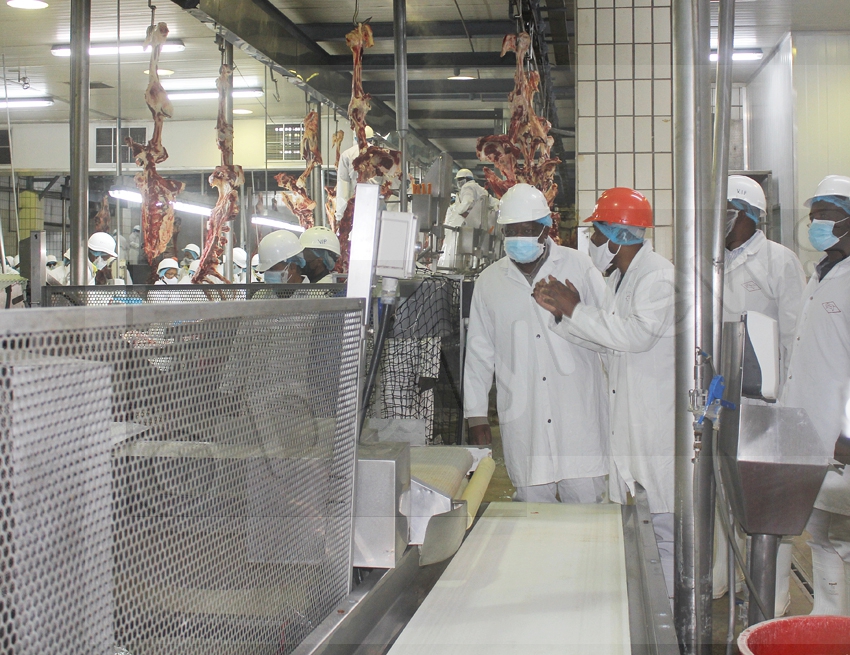Parliament passes Public Roads Amendment Bill
22 Aug 2022
Legislators on Friday passed the Public Roads (Amendment) Bill 2022, which intends to amend the Public Roads Act to provide for the establishment of toll roads and collection of levies on such roads.
Presenting the bill, Minister of Transport and Public Works, Mr Eric Molale said the country was introduced to the tolling system through the Kazungula Bridge one-stop border post. Consequently, he said the envisaged amendments to the Public Roads Act would create frameworks guiding the establishment or declaration of toll gates on public roads across the country.
Among others, he said, the bill sought to empower the minister to make regulations regarding toll roads management and maintenance as well as collection of tolls on such roads.
“Clause 4 of the bill inserts the following sections: Section 20 which empowers the minister to establish toll roads or to declare existing public roads as toll roads; Section 21 which provides for the payment of tolls by road users of a toll road; Section 23 which empowers the minister to exempt certain categories or classes of vehicles from paying a toll or to restrict times within which a toll is collected and to suspend the levying of a toll on any road as deemed necessary; Section 24 provides for toll-related offences and penalties,” he explained.
Contributing to the debate, Francistown South legislator, Mr Wynter Mmolotsi said tolling was an overdue development which could be used to raise revenue for the country. However, he noted that most public roads across the country were in a poor state.
“For us to introduce toll gates, we need to ensure that our roads are in a good state and that we have alternative routes for motorists who do not want to use toll roads,” he said.
Subsequently, he implored government to embark on an exercise to improve roads across the country and to make it a priority.
MP for Tati East, Dr Douglas Letsholathebe spoke in support of the bill, noting that it would generate funds for the country. He also said the opening of the Kazungula Bridge had increased movement of vehicles into Botswana.
“I am optimistic that collection of tolls will assist in maintaining our roads. I also believe government will find means of establishing alternative roads for those who want to avoid toll gates,” he said.
He argued that it was an opportunity for the Public Private Partnership (PPP) model to maintain public roads. He further said there was need to take advantage of the electronic billing system to ensure smooth movement.
Furthermore, Dr Letsholathebe said it was important to conduct intensive consultation with the purpose to ensure that Batswana were on board.
Mahalapye West MP, Mr David Tshere opposed the bill, arguing that tolling should be done only at all ports of entry and not on internal roads. He said internal roads were still small and were in a terrible state to warrant tolling.
“I had thought we would come up with a law that, as a first approach to tolling, we introduce such at the borders, billing vehicles from outside the country not Batswana within the country,” he said.
He also called for an improvement of alternative modes of transport such as rail transport to give people the option of travel. He said rail transport should be prioritised as a safer mode of transport as compared to the bus system.
“We want the return of the Blue Train to give people an option. Let us avoid pushing people to the buses because of the high accident rate and high death tolls on the roads,” he said.
Also in support of the bill, Specially Elected MP, Ms Beauty Manake acknowledged that the Kazungula Bridge road was experiencing high volumes of vehicles into Botswana, hence the need to establish a toll gate on the road.
She noted that as a trade transit country, Botswana had state-of-the-art roads to facilitate movement of vehicles. “This is a good bill that can assist us reach and access other African countries. It is giving us an opportunity to collect tolls and develop our infrastructure,” she said.
Responding to the debate, Mr Molale said the bill was delayed due to logistics involved in the process such as identifying roads to be declared as well as alternative roads.
“It is a long process to build a national grid and establish what will be ultimately be determined as alternative routes. Moreover, we had to develop regulations on how to select vehicles to be tolled,” he explained.
He also acknowledged that there was need to build primary and alternative roads as well as further consultations.
He said the ultimate goal was to ensure that the law did not disadvantage the low income while at the same time avoiding exploitation by the high-income category which included commercial trucks. ENDS
Source : BOPA
Author : Kehumile Moekejo
Location : GABORONE
Event : Parliament
Date : 22 Aug 2022



